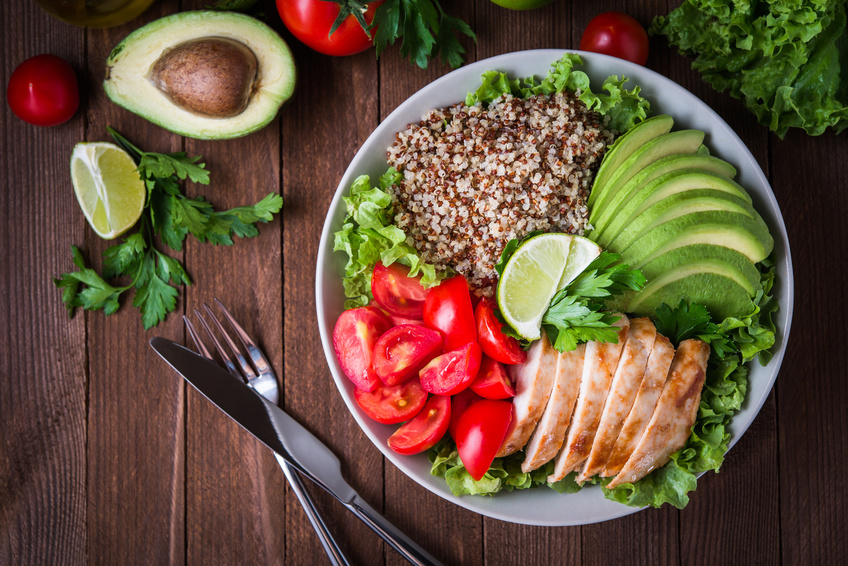
One simple step to healthier eating – balance!
June 8, 2023
Healthy Hangover Cures
November 21, 2023 You may have heard that fermented foods are good for you. But what are they, why are they helpful and how can you include them in your diet? Read on for more
You may have heard that fermented foods are good for you. But what are they, why are they helpful and how can you include them in your diet? Read on for more
What are fermented foods?
Fermentation was originally used as a way of preserving food. Food is broken down by yeast or bacteria, which then remain in the food. So these foods are a great source of beneficial bacteria, Lactobacillus and Bifidobacterium.
Why are they important?
We are just starting to understand the huge role that our gut and especially the bacteria in our gut play in our overall health. Of course, they are important for digestive health but they have a much more widespread effect, including on mood, immune and even weight management and hormone health. Many factors including stress and the modern diet, especially diets higher in ultra processed foods, can have a negative effect on our microbiome health.
How can we include them in our diet?
Most cultures have traditional forms of fermented food. In Ireland, buttermilk and yoghurt have been part of our diet for hundreds of years.
- Buttermilk can be included in baking e.g. soda bread and also used as a marinade or in dressings or even smoothies.
- When choosing a yoghurt, probably the easiest way to include fermented food in your diet, chose a natural yoghurt that includes live bacteria in the ingredient list and avoid the highly processed and sweetened fruit or vanilla yoghurts widely available. Add to breakfast, have as a snack with some fruit or include in a smoothie.
- Kefir is another form of fermented dairy now available in most supermarkets and can be used in a similar way to yoghurt.
- Good quality apple cider vinegar is another fermented food that can easily be included in the diet. Mix with olive oil and a little Dijon mustard to make a salad dressing or add a tsp to warm or sparkling water to make a refreshing drink.
- Both sauerkraut and kimchi are traditional fermented foods from other parts of the world and very easy to include. Just add a spoon into a salad or sandwich, add to a stir fry or casserole at the end of cooking. Or blend into a dressing. These can be an acquired taste though and kimchi can be very spicy.
- The traditional Japanese miso paste is another tasty fermented food, made from fermented soya beans or grains. This can be added to dressings or stir fry sauces, stirred through curries, soups or casseroles to give a lovely unami flavour or mixed with hot water to make miso soup. If you are new to miso, chose a light miso which has a milder flavour. Miso pastes are available in some supermarkets, in Asian stores and in health food stores and will last for weeks or longer in the fridge.
- Kombucha, a fermented drink originally made from tea, is also widely available and can be a refreshing alternative in the summer. Some commercial varieties are very high in sugar, so have a look at the label. To start with, it can be helpful to dilute kombucha with sparkling water.
The aim should be to have a variety of different fermented foods or drinks across the week. Many fermented foods are now widely available in supermarkets. Some, like sauerkraut, kimchi and kombucha are also very easy and cheap to make at home.
| Breakfast | Overnight oats with berries and natural yoghurt |
| Lunch | Mixed salad with salmon, 1 tbsp sauerkraut or kimchi, slice wholegrain sourdough bread |
| Dinner | Stirfry with miso paste and wholegrain rice |
| Snack | Natural yoghurt or kefir with stewed fruit |
| Drink | Kombucha – start with small amount and add sparkling water |
Any caveats?
If you are new to fermented foods, introduce them gradually in small amounts. Otherwise, they can cause bloating initially. This is especially true for people with IBS or sensitive stomachs, who may have a bacterial balance (check your own gut bacteria with a GI Ecologix test). Or if you have been diagnosed with SIBO.
Kombucha can contain small amounts of alcohol, especially if made at home, so is not suitable if pregnant.
As fermented food contains live bacteria, it may also be unsuitable for people with compromised immune systems e.g. post chemo or if taking medication to suppress immune function.


